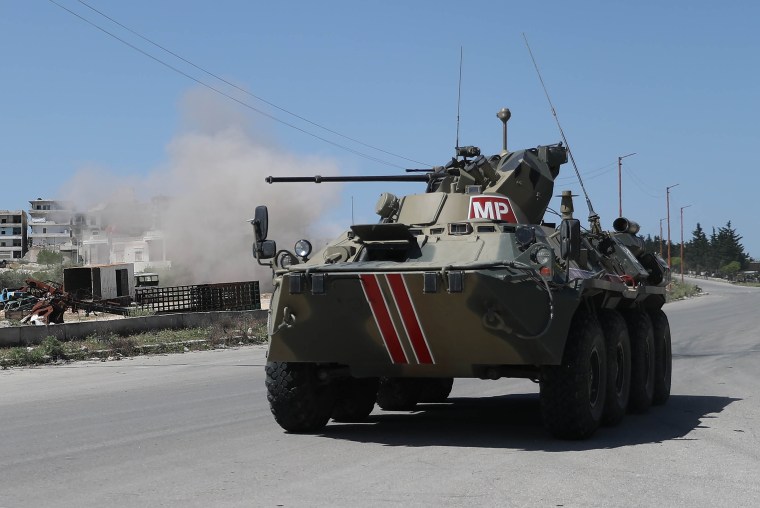On June 10, 2020, several members of the militant group Hayat Tahrir al-Sham (HTS), an Al-Qaeda offshoot previously known as Al-Nusra Front, hit and kicked at least 12 Syrian journalists while they were covering a joint Turkish-Russian military patrol on the M4 Highway, which links Latakia and Aleppo, according to four of the journalists who spoke with CPJ via messaging app on June 10 and 11, as well as news reports and a statement by the independent Syrian Journalists Association (SYJA). The attack occurred near the town of Ariha, 9.3 miles (15 kilometers) south of Idlib. The journalists who spoke with CPJ said they did not know why they were assaulted.
In March 2020, Russia and Turkey agreed to conduct joint military patrols along the M4 Highway in the northwestern governorate of Idlib, which is held by opposition forces against Syrian President Bashar al-Assad, according to Reuters. The agreement for the joint patrols was part of a ceasefire deal to halt an escalation of violence in the region, Al Jazeera reported.
According to SYJA and a report by the pro-civil society anti-al-Assad opposition news website Macro Media Center (MMC), the assaulted journalists were Omar Haj Kadour, a reporter for Agence France-Presse (AFP); Safi Hamam, a reporter for the broadcaster Al-Jazeera Mubasher; Ghaith al-Sayyed, a reporter for the pro-opposition news website Shaam News Network; Ali Haj Suleiman, a reporter for MMC; Ezz al-Din al-Qasm, a freelance photographer for the Turkish Anadolu Agency; Kenana Hindwai, a reporter for the pro-opposition Thiqa News Agency; Moawiya al-Atrash and Ahmed Fallaha, journalists for the Media Office of Binnish, a pro-civil rights opposition media organization; Abdel Wajd Haj Sattafi, a freelance journalist for AFP; Abdel Razzaq Sobeih, a reporter for the broadcaster Aleppo Today; Moath al-Abbas, a reporter for the pro-opposition Baladi Network; and Mohammad al-Rifai, a reporter for the pro-civil rights opposition news website Zaman al-Wasl.
Reached the day of the attack on June 10, al-Qasm told CPJ that the group of journalists was covering the weekly joint Russian-Turkish patrol from a bridge near the town of Ariha. As the patrol passed, women and young people standing by the road began to throw stones at the Russian military vehicles, he said.
“We were filming the passage of the patrol and the incident. There were some security officers belonging to HTS, but they didn’t mind our presence or our filming. However, five minutes later HTS soldiers showed up and went straight to Omar Haj Kadour and started to hit him and asked him to stop filming. We objected and tried to stop them, but they hit everybody with their hands and feet,” al-Qasm told CPJ. He added that HTS militants tried to seize and destroy the journalists’ cameras, but they did not succeed. A camera lens belonging to one reporter was damaged when his bag fell during the assault, he said. SYJA identified the journalist whose lens was damaged as Haj Sattafi.
Three other journalists who spoke with CPJ but preferred to remain anonymous for fear of reprisal estimated that there were 15 attacking HTS soldiers. They said that Kadour and al-Sayyed were hit hardest, but did not sustain major injuries. They were able to get away with the help of Turkish soldiers who were on site to protect the passage of the military patrol, they told CPJ.
According to SYJA and MMC, some of the journalists were taken to a hospital in Idlib to receive medical treatment.
SYJA published a picture of Kadour wearing a vest clearly marked with the word “PRESS” being pushed by an HTS soldier.
HTS’s media office told CPJ via messaging app on June 19 that the attack on journalists near Ariha on June 10 was “unacceptable.” It attributed the assault to four members of its military wing, and said that the members have been suspended over the incident and are now being held in jail awaiting a decision from a military court that is investigating the matter.
